Speakers
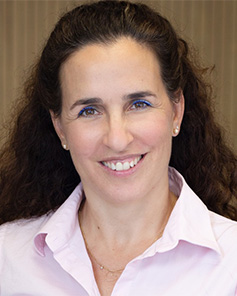
Ayelet Akselrod-Ballin
Head and CTO of AI Center

![]()
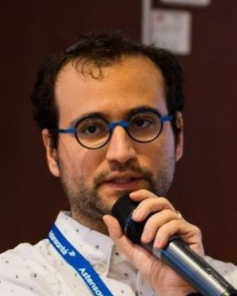
Pr Joachim Behar
Professor of medical AI and CTO SleepAI
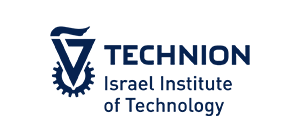
![]()
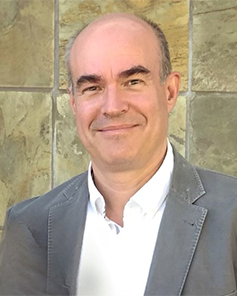
Jeffrey Budzinski
Software & Systems Architect

![]()
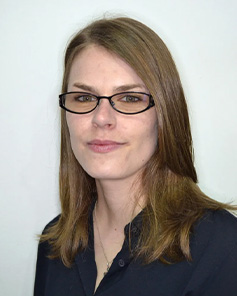
Dr Ninon Burgos
PR[AI]RIE, CNRS researcher
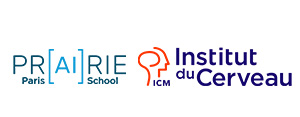
![]()
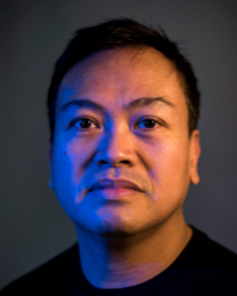
Dr Leo Anthony Celi
MD, Senior Research Scientist

![]()
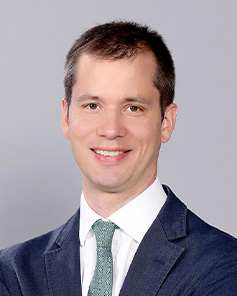
Pr Guillaume Chassagnon
Radiologist, Pres. Société d’Imagerie Thoracique

![]()

Alexandre Gallegos
Data Product Manager
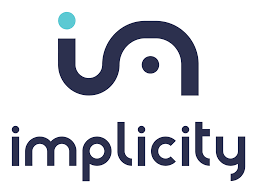
![]()
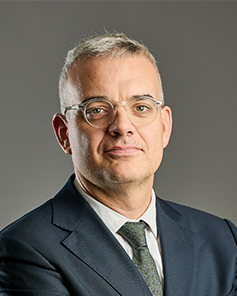
Pr Etienne Gayat
Deputy General Director

![]()
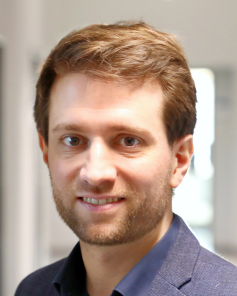
Pr Jakob Nikolas Kather
MD, professor of Medicine and Computer science

![]()
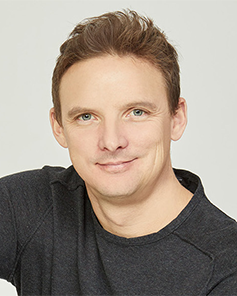
Alexandre Lebrun
Co-Founder & CEO

![]()
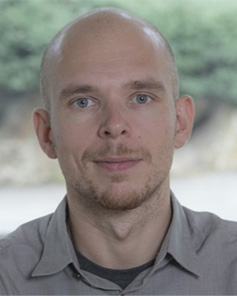
Dr. Marco Lorenzi
Research Scientist
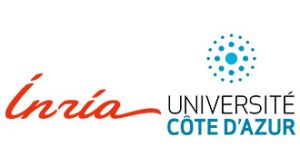
![]()

Sonya Makhni
Clinical Informaticist & physician

![]()
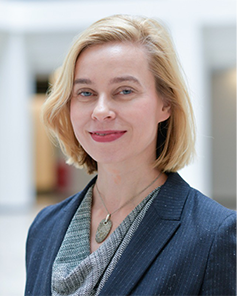
Dr. Petra Ritter
Professor, Director for International Affairs
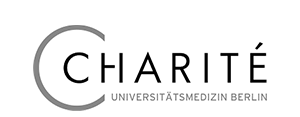
![]()
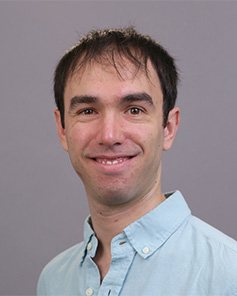
Pr David Sontag
Professor of EECS (MIT) and CEO of Layer Health

![]()
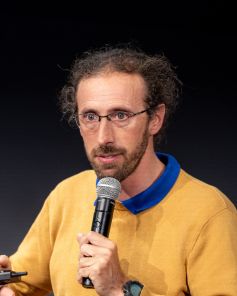
Dr Gaël Varoquaux
Research Director

![]()
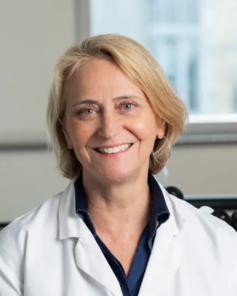
Pr Anne Vincent-Salomon
Professor at PSL and Director

![]()
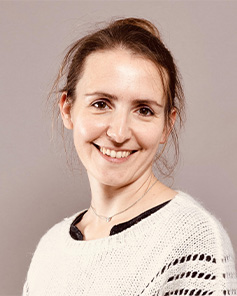
Dr. Stéphanie Sidorkiewicz
Member of the CNGE research division
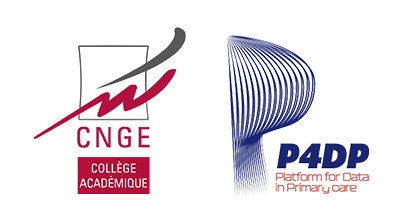
![]()
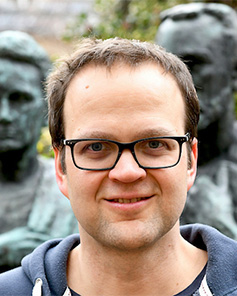
Pr Thomas Walter
PR[AI]RIE, Professor & researcher
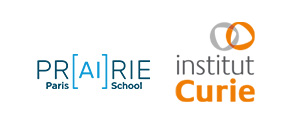
![]()
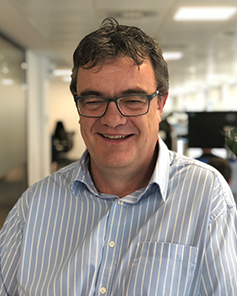
Dr Tim Williams
Head of Interventional Research
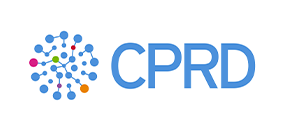
![]()
Nacim Rahal
VP Data&AI

![]()
Karolinska University Hospital
Innovation Direction representative

![]()
Plenary speakers
This list of speakers is not yet completed and will be updated.

Ayelet Akselrod-Ballin
Head and CTO of AI Center, Sheba Medical Center
Ayelet Akselrod-Ballin brings over two decades of experience at the intersection of academia and industry, specializing in cutting-edge technologies in computer vision, machine learning, deep learning, and natural language processing, with a strong focus on healthcare applications. She completed her postdoctoral fellowship at the Computational Radiology Laboratory at Harvard Medical School and Boston Children’s Hospital, and holds a Ph.D. in Applied Mathematics and Computer Science from the Weizmann Institute of Science.
Ayelet previously served as VP of R&D at Zebra Medical Vision, where under her leadership the company achieved its 11th FDA clearance for AI-based medical imaging solutions. Before that, she led medical imaging research at IBM Research. Most recently, she was a senior director of algorithms at Mobileye and Adjunct lecturer at Recihman university. Currently, Ayelet leads the AI Center at the ARC and the Sheba Medical Center.
Hospitals Keynotes:
June, 30th, morning

Pr Joachim A. Behar
Professor of medical AI and CTO SleepAI
Prof. Behar is heading the Artificial Intelligence in Medicine Laboratory (AIMLab.) at the Technion Faculty of Biomedical Engineering. Dr. Behar’s work involves research of medical artificial intelligence to benefit patient care and includes development of machine learning algorithms for analyzing large medical unstructured, i.e., physiological time series and medical images and datasets, with an emphasis on early diagnosis in the medical disciplines of cardiology, sleep medicine and ophthalmology. The lab has already conducted large-scale experiments on extensive databases, encompassing millions of participants and thousands of hours of continuous physiological recordings. Dr. Behar made significant contributions to the discovery of diagnostic biomarkers in cardiology and sleep medicine. In 2022, he initiated the Technion-Rambam Initiative in Medical AI (TERA), a collaborative effort between the Technion and Rambam Health Care Campus, utilizing large medical datasets and state-of-the-art AI advances to combat human diseases. Dr. Behar is the founder of SleepAI a medical AI spin-out company of his laboratory which is incorporated at eHealth Venture (eHV).
Course: Deep learning for continuous physiological time series analysis
July, 2nd, 11:00 -12:30

Jeffrey Budzinski
Software and Systems Architect
Jeffrey Budzinski is a software and systems architect at Cleveland Clinic. In this role, he works to accelerate Cleveland Clinic’s digital transformations in areas including cloud, data, analytics, and artificial intelligence to improve access to care and enhance the patient and caregiver experience. Previously, Mr. Budzinski was Vice President of Architecture at Yahoo and has over 25 years of Silicon Valley experience building products in diverse domains, including search, advertising, security, and finance. Mr. Budzinski holds degrees from the University of Maryland College Park and Oregon State University
Course: Unlocking Healthcare Innovation with Data Accessibility
June, 30th, 11:00 – 11:30

Dr Ninon Burgos
PR[AI]RIE, CNRS researcher
Ninon Burgos is a CNRS research at the Institut du Cerveau in Paris, co-director of the ARAMIS team and a member of PR[AI]RIE, the PaRis Artificial Intelligence Research InstitutE. She received her PhD from University College London in 2016 and her “Habilitation to supervise research” from Sorbonne University in 2022. In 2019, Ninon Burgos received the Cor Baayen Early Career Researcher Award from ERCIM. Ninon Burgos’ research focuses on the processing and analysis of medical images, the use of images to guide diagnosis, and the application of these methods in the clinic. In particular, she has contributed to: i) the detection of anomalies using traditional image processing techniques and deep generative models, ii) the transfer to the clinic of machine learning approaches for quality control and computer-aided diagnosis, iii) the reproducibility of medical image processing and computer-aided diagnosis tools based on statistical learning, and iv) the development of open-source software.
Course: Generative Models in Medical Imaging: From Variational Autoencoders and GANs to Diffusion Models and Beyond
July 3rd, 9:00-10:30

Dr Leo Anthony Celi
MD, Senior research scientist at MIT
Dr. Celi is the principal investigator behind the Medical Information Mart for Intensive Care (MIMIC) and its offsprings, MIMIC-CXR, MIMIC-ED, MIMIC-ECHO, and MIMIC-ECG. With close to 100k users worldwide, an open codebase, and close to 10k publications in Google Scholar, the datasets have undoubtedly shaped the course of machine learning in healthcare in the United States and beyond. His group has written 3 open-access textbooks: “Secondary Analysis of Electronic Health Records” in 2016, “Global Health Informatics: Principles of eHealth and mHealth to Improve Quality of Care” in 2017, and “Leveraging Data Science for Global Health” in 2020. The first has been downloaded over 1.7 million times and translated into Mandarin, Spanish, Korean and Portuguese. The group has created two open online courses, “Global Health Informatics” and “Collaborative Data Science for Healthcare”. Finally, in partnership with hospitals, universities and professional societies across the globe, Dr. Celi and his team have organized over 50 datathons in 22 countries, bringing together students, clinicians, researchers, and engineers to leverage data routinely collected in the process of care.
Keynote: Engineering Humility and Empathy into Human-AI Systems
June, 30th, afternoon
Course: Health AI Systems Thinking for Equity (HASTE) workshop
July, 1st, 11:00 -12:30

Pr Guillaume Chassagnon
Radiologist, President - Société d’Imagerie Thoracique
Prof. Chassagnon is radiologist at Cochin Hospital in Paris (AP-HP Centre Université Paris Cité). He is specialized in thoracic imaging. He graduated in 2016 and obtained a PhD in Mathematics and Computer Science from École CentraleSupelec (Université Paris Saclay) in 2019, with a PhD thesis entitled “AI-driven Detection, Characterization and Classification of Chronic Lung Diseases”. His main research topics are machine learning, interstitial lung diseases and bronchial diseases. He has authored or co-authored over 110 articles and is the current president of the French Society of Thoracic Imaging (Société d’Imagerie Thoracique).
Keynote: “AI applications in radiology: the example of chest imaging”
June 30th, 4:30 pm

Alexandre Gallegos
Data Product Manager - Implicity
Alexandre Gallegos is Data Product Manager at Implicity, a scale-up specialising in the remote monitoring of cardiology patients via connected medical devices. He develops software incorporating artificial intelligence, deployed on a large scale to help doctors prioritise and monitor their patients more effectively from a distance. In particular, it has led the development of SignalHF, a score that predicts cardiac decompensation, and ILR ECG Analyzer, an algorithm for analysing implantable ECGs, designed to reduce false positives and speed up diagnosis. At the crossroads of product and data, Alexandre designs solutions based on real-life data to transform the complexity of patient pathways into clinically useful tools. He works closely with medical, technical and regulatory teams to develop robust, relevant solutions that are actually used in the field. Prior to Implicity, he contributed to the development of embedded deep learning algorithms at Diabeloop, a major player in AI applied to diabetes. A graduate of Télécom Bretagne (IMT Atlantique), he is interested in the levers for adopting AI in healthcare pathways, between scientific requirements, technological innovation and impact on the ground.
Roundtable “AI & Community Medecine”
June 30th, 2:00 pm

Pr Etienne Gayat
Deputy General Director - AP-HP
Professor Étienne Gayat has been Deputy Director General of Assistance Publique – Hôpitaux de Paris (AP-HP) since November 2024, appointed by Nicolas Revel. He shares this position with Laetitia Buffet, succeeding Professor Catherine Paugam-Burtz. An anaesthetist-resuscitator, he is a professor in the Faculty of Medicine at Université Paris Cité and works in the AP-HP University Hospital Group. Nord – Université Paris Cité. As team leader of the Inserm MASCOT unit, his work focuses on biomarkers and biotherapies applied to critical care. From 2023 to 2024, he was special health adviser to the Minister for Higher Education and Research. Prior to this, he headed the PARABOL medico-university department and was crisis medical director at AP-HP Nord, playing a central role during the COVID-19 pandemic. He holds a doctorate in biomathematics and a habilitation to direct research (HDR) from Université Paris Diderot, obtained in 2017, and an MBA in healthcare from Université Paris Dauphine. He combines scientific expertise with hospital management skills. Committed to medical training, he was a member of the scientific committee of the French Society of Anaesthesia and Intensive Care and secretary of the National College of Teachers of Anaesthesia and Intensive Care from 2017 to 2022.
Keynote: Health innovation deployment at AP-HP
June 30th, morning

Pr Jakob Nikolas Kather
MD, professor of Medicine and Computer science
Professor Jakob Kather holds dual appointments in medicine and computer science at the Technical University (TU) Dresden, Germany, serves as a senior physician in medical oncology at the University Hospital Dresden and holds an additional affiliation with the National Center for Tumor Diseases (NCT) in Heidelberg. His research is focused on applying artificial intelligence in precision oncology. Prof. Kather’s research team at TU Dresden is using deep learning techniques to analyze a spectrum of clinical data, including histopathology, radiology images, textual records, and multimodal datasets. Guided by the belief that medical and tech expertise needs to be combined, medical researchers in his team learn computer programming and data analysis, while computer scientists are immersed in cancer biology and oncology. Prof. Kather chairs the “Working group on Artificial Intelligence” at the German Society of Hematology and Oncology (DGHO) and is a member of the pathology task force of the American Association for Cancer Research (AACR). His work is supported by numerous European and national grants, which enable the team to develop new deep learning methods for medical data analysis techniques and to apply them in precision oncology.
Course: Computational Pathology, Foundation Models, and Vision-Language Models
July, 2nd, 09:00 – 10:30

Alexandre Lebrun
Co-Founder & CEO of Nabla
Alexandre Lebrun is a serial entrepreneur with 20+ years of experience building AI products. Before Nabla, he led engineering for Facebook AI Research. He joined Facebook through their acquisition of Wit.ai, an AI platform he co-founded in 2013. Wit.ai is a natural language processing (NLP) API that allows developers to integrate intelligent, conversational capabilities into their applications.
Prior to Wit.ai, he was the founder and CEO of VirtuOz, “Siri for the Enterprise” virtual agents, acquired by Nuance Communications in 2013.
He received an MS in Computer Science from Ecole Polytechnique in Paris, France. He is a firm believer in the potential of AI to support healthcare professionals in the delivery of empathetic, predictive, proactive care, at scale. One of his mentors is Yann LeCun, also one of Nabla’s advisors.
Round Table : AI & Community Medecine
June, 30th, 02:00pm

Marco Lorenzi
PhD, research scientist at INRIA
Marco Lorenzi, PhD, is a tenured research scientist at the Inria Center of University Côte d’Azur, and is chair holder at the Interdisciplinary Institute for Artificial Intelligence 3IA Côte d’Azur. In the past he was visiting Senior Lecturer at the School of Biomedical Engineering & Imaging Sciences at King’s College London and Research Associate at the Centre for Medical Image Computing at University College London. His research focuses on developing statistical learning methods to model heterogeneous and sensitive data in biomedical applications. He is the founder and scientific responsible of the open-source platform Fed-BioMed for federated learning in healthcare applications.
Course: Federated learning in healthcare: from theory to practice
July, 2nd, 11:00am – 12:30pm

Dr. Petra Ritter
Professor and Director for International Affairs
Dr. Petra Ritter is a leading neuroscientist and Professor for Brain Simulation at the Berlin Institute of Health (BIH) and Charité – Universitätsmedizin Berlin. She is also the Director of the Brain Simulation Section at Charité, where she pioneers personalized brain simulation technologies to advance understanding and treatment of neurological diseases. Additionally she serves as Director for International Affairs at Charité – Universitätsmedizin Berlin. Her research integrates cutting-edge techniques like multimodal imaging with simultaneous EEG-fMRI and computational modeling to explore brain state dependencies of plasticity and learning. Notably, she co-founded The Virtual Brain, an open-source brain simulation platform utilized globally in academic and clinical settings. She also leads major international initiatives, such as the EU-funded EOSC project Virtual Brain Cloud, and the Health Data Cloud of EBRAINS – a European research infrastructure. She also leads the European Testing and Experimentation Facility Health AI and Robotics (TEF-Health) that provides services to industry for validating and certifying AI systems in Healthcare. Petra Ritter studied medicine in Germany and in the US.
Keynote: From Digital Brain Twins to Biological Inspired Computing
June, 30th, morning

Pr David Sontag
Professor of EECS and CEO of Layer Health
Dr. David Sontag is Professor at MIT in the Department of Electrical Engineering and Computer Science (EECS) and von Helmholtz Professor in the Institute for Medical Engineering and Science (IMES). He is also a principal investigator in the Computer Science and Artificial Intelligence Laboratory (CSAIL) at MIT and co-founder and CEO at Layer Health. Dr. Sontag’s research interests are in machine learning and artificial intelligence. As part of IMES, he leads a research group that aims to transform healthcare through the use of machine learning. Dr. Sontag joined MIT in 2017 from New York University, where he was Assistant Professor in Computer Science and Data Science from 2011 to 2016, and before this he was a postdoctoral researcher at Microsoft Research New England from 2010 to 2011. Dr. Sontag received the Sprowls award for outstanding doctoral thesis in Computer Science at MIT in 2010, best paper awards at the conferences Empirical Methods in Natural Language Processing (EMNLP), Uncertainty in Artificial Intelligence (UAI), and Neural Information Processing Systems (NeurIPS), faculty awards from Google, Facebook, and Adobe, and a NSF CAREER Award. Dr. Sontag received a B.A. from the University of California, Berkeley.
Course: Causal Inference for Precision Medicine
July 1st, 9:00-10:30

Dr. Gaël Varoquaux
Research Director at Inria
Gaël Varoquaux is a research director working on data science at Inria (French computer science national research) where he leads the Soda team. He is also co-founder and scientific advisor of Probabl.
Varoquaux’s research covers fundamentals of artificial intelligence, statistical learning, natural language processing, causal inference, as well as applications to health, with a current focus on public health and epidemiology. He also creates technology: he co-founded scikit-learn, one of the reference machine-learning toolboxes, and helped build various central tools for data analysis in Python.
Varoquaux has worked at UC Berkeley, McGill, and university of Florence. He did a PhD in quantum physics supervised by Alain Aspect and is a graduate from Ecole Normale Superieure, Paris.
Keynote: From prediction to the health benefits: AI blues
Monday, June 30th, afternoon

Pr. Anne Vincent-Salomon
Professor at PSL and Director of the Institut des Cancers des Femmes (Institut Curie)
Anne Vincent-Salomon, pathologist, MD, PhD, is Head of the Department of Diagnostic and Theranostic Medicine and Director of the Institute of Women’s Cancer (Institut Hospitalo-Universitaire 3rd wave; France 2030), at the Institut Curie, Paris, France, and she is Professor at Université Paris Sciences Lettres (PSL). Her research activities aimed at better characterizing histologically distinct subtypes of breast cancer in order to contribute to breast cancer taxonomy, important for prognostic and diagnostic purposes. She is studying the phenotypic/morphologic characteristics of breast cancers such as lobular tumors, rare types of invasive tumors including metaplastic carcinomas, and DCIS (ductal carcinomas in situ). In collaboration with Dr. Mechta-Grigoriou, her research focused on deciphering the characteristics of the stroma in breast cancers, in particular, lobular carcinomas.
Together with Dr. Derksen (Utrecht) and Pr Desmedt (Leuven) she co-founded a European Consortium for Invasive Lobular Breast Cancer. In 2022, with her team, she achieved the digitalization of the diagnostic workflow. In collaboration with Pr Walter (Ecole des Mines/ INSERM U1331/ Institut Curie) or with start-ups (IBEX, PRIMAA, OWKIN…), her research focuses on the development of deep learning algorithms for diagnostic or assessing prognostic or the identification of patients with homologous recombination deficiency among luminal breast cancers.
Keynote: From diagnosis to molecular markers : AI tools for practicing pathologists
June 30th, afternoon

Dr. Stéphanie SIDORKIEWICZ
Member of the research division of the CNGE (Collège National des Généralistes Enseignants)
Dr. Stéphanie Sidorkiewicz is a French general practitioner and researcher based in Paris. She is an Associate Professor at the Faculty of Medicine, Université Paris Cité, where she is actively involved in the training of future general practitioners. She is affiliated with the Center for Research in Epidemiology and Statistics – Université Paris Cité (CRESS – UMR 1153), team METHODS. Dr. Sidorkiewicz holds dual academic and clinical roles, bridging the gap between frontline patient care and medical research, with a particular focus on chronic disease management, integration of evidence-based medicine in primary care, and health system organization.
With the growing integration of artificial intelligence in healthcare, Dr. Sidorkiewicz is developing expertise in the use of AI in general practice and clinical research, drawing on her scientific background and natural interest in technology. She is a member of the research division of the CNGE (Collège National des Généralistes Enseignants), where she contributes to the deployment of the national project P4DP (Platform for Data in Primary Care), which explores the potential of data and AI to enhance primary care research and decision-making.
Round Table: AI & Community Medecine
June 30th, afternoon

Pr, Thomas Walter
PR[AI]RIE, Curie Institute
Thomas Walter obtained his PhD from the Ecole Nationale Supérieure des Mines de Paris in 2003, in the field of medical image analysis at the school’s Centre de Morphologie Mathématique. He then joined Jan Ellenberg’s group at EMBL in Heidelberg, where he developed artificial intelligence methods for computational phenotyping. In 2012, he joined the Bioinformatics Center at Mines ParisTech, before becoming the Center’s Director in 2018. His work focuses on biomedical image analysis, with applications including high-content screening and computational pathology. In parallel, Thomas Walter continues to teach deep learning for image analysis, and is active in FranceBioImaging and the research group ImaBio. Since 2019, he has also held a PRAIRIE (PaRis Artificial Intelligence Research InstitutE) chair.
Course: Computer vision 1-0-1
June 30th, 6:30-7:30pm

Dr, Tim Williams
Head of International Research, CPRD
Clinical Practice Research Datalink (CPRD) is a real-world research service supporting retrospective and prospective public health and clinical studies. CPRD research data services are delivered by the Medicines and Healthcare products Regulatory Agency with support from the National Institute for Health and Care Research (NIHR), as part of the Department of Health and Social Care.
Tim Williams started at the (Clinical Practice Research Datalink) CPRD as an epidemiologist in 2001. After 2 years in charge of the Head of Health Data Science team in 2015, he was appointed as Head of Interventional Research (IR). The IR Team delivers services that support a wide range of clinical research studies, from patient recruitment to clinical trial management for studies in real world populations. His field of expertise is real world evidence in clinical research. He is part of the CPRD Senior Management Team.
Tim holds an MSc in Epidemiology and a PhD in Biomedical Databases.
Round-table: AI & Community Medecine
June 30th, afternoon
This list of speakers is not yet completed and will be updated.